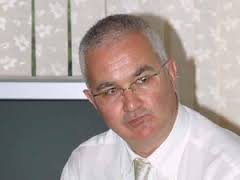 I am in Astana, the gateway to southern Siberia. The temperature in the afternoon is around -10 degrees Celsius. All around us the ground is covered in ice, but Astana residents still say, "We've made it through winter now, and the scent of spring is in the air." Everyone is getting ready to celebrate Nevruz on March 21. Personally, I love the cold of Astana. It's a dry cold, a cold that keeps people strong and doesn't make them ill. For Kazakhstan, the winter season is especially important. Dec. 1 is the "first president of the Kazakhstan Republic" day, marked by the president turning on the lights of a new year's tree, then a couple of weeks later on Dec. 16 is Kazakhstan's Independence Day.
I am in Astana, the gateway to southern Siberia. The temperature in the afternoon is around -10 degrees Celsius. All around us the ground is covered in ice, but Astana residents still say, "We've made it through winter now, and the scent of spring is in the air." Everyone is getting ready to celebrate Nevruz on March 21. Personally, I love the cold of Astana. It's a dry cold, a cold that keeps people strong and doesn't make them ill. For Kazakhstan, the winter season is especially important. Dec. 1 is the "first president of the Kazakhstan Republic" day, marked by the president turning on the lights of a new year's tree, then a couple of weeks later on Dec. 16 is Kazakhstan's Independence Day.


 The lawyers of former Kazakh diplomat and Malta exile Rakhat Aliyev are insisting that his death in an Austrian prison was no suicide, and are calling for an independent investigation into the matter.
The lawyers of former Kazakh diplomat and Malta exile Rakhat Aliyev are insisting that his death in an Austrian prison was no suicide, and are calling for an independent investigation into the matter.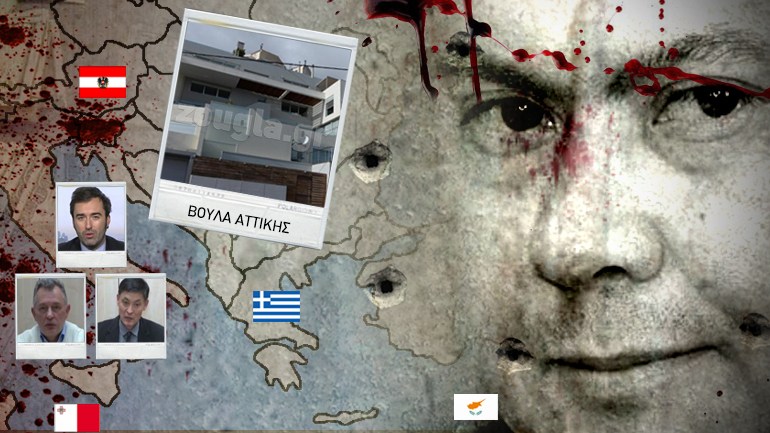 A suicide in the prison of Vienna put an end to the first phase of a political-financial thriller which preoccupied the governments of Malta, Austria and the prosecuting authorities in Europe for years. The case is not closed. On the contrary, all the unknown aspects of a story where the leading part was played by a person who was found dead in the small toilet of the prison in Austria and was accused of blackmail, murders, threats and money laundering come to light.
A suicide in the prison of Vienna put an end to the first phase of a political-financial thriller which preoccupied the governments of Malta, Austria and the prosecuting authorities in Europe for years. The case is not closed. On the contrary, all the unknown aspects of a story where the leading part was played by a person who was found dead in the small toilet of the prison in Austria and was accused of blackmail, murders, threats and money laundering come to light.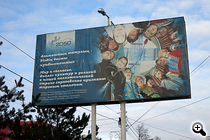 Many Kazakhstanis, including ethnic minorities, support Nazarbayev's leadership. (Photo: Joanna Lillis).
Many Kazakhstanis, including ethnic minorities, support Nazarbayev's leadership. (Photo: Joanna Lillis). 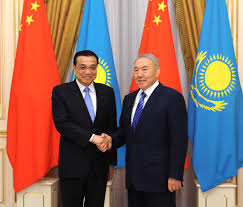 On 14 December 2014, the Chinese Premier Li Keqiang visited Astana for the 13th meeting of the Council of Heads of Government of the Shanghai Cooperation Organisation. The premier's visit signified a new stage in Kazakh–Chinese economic relations. Li announced a new package of economic deals, totalling US$14 billion. Kazakhstan and China also agreed to establish joint enterprises in the manufacturing and other key industrial sectors.
On 14 December 2014, the Chinese Premier Li Keqiang visited Astana for the 13th meeting of the Council of Heads of Government of the Shanghai Cooperation Organisation. The premier's visit signified a new stage in Kazakh–Chinese economic relations. Li announced a new package of economic deals, totalling US$14 billion. Kazakhstan and China also agreed to establish joint enterprises in the manufacturing and other key industrial sectors.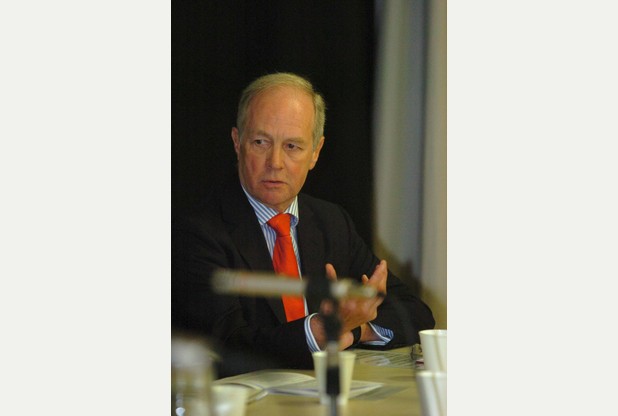 An MP who is paid £15,000 a year to advise a repressive regime has been urged to confront it about human rights. Peter Lilley, the MP for Hitchin and Harpenden, is paid the sum for his advisory work on the Eurasian Council on Foreign Affairs (ECFA), which is funded by the government of Kazakhstan.
An MP who is paid £15,000 a year to advise a repressive regime has been urged to confront it about human rights. Peter Lilley, the MP for Hitchin and Harpenden, is paid the sum for his advisory work on the Eurasian Council on Foreign Affairs (ECFA), which is funded by the government of Kazakhstan. Austria has asked Switzerland to carry out an autopsy on Rakhat Aliyev, a Kazakh dissident found hanged in an Austrian prison last week, to dispel any suggestions of a cover up after a first post mortem found traces of sedatives.
Austria has asked Switzerland to carry out an autopsy on Rakhat Aliyev, a Kazakh dissident found hanged in an Austrian prison last week, to dispel any suggestions of a cover up after a first post mortem found traces of sedatives.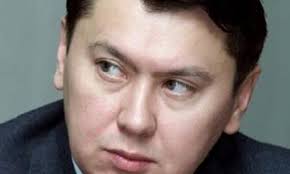 Rakhat Aliyev experienced the sort of career that is only possible in autocratic regimes; where blood is thicker than water, and where whom you know is infinitely more important than anything you may have learned. A one stage his CV glistened with the sort of plum jobs only available to those with contacts, but by the time of his death at 52 his downfall was complete. He died in an Austrian prison cell awaiting trial for murder, a charge his supporters say was politically motivated.
Rakhat Aliyev experienced the sort of career that is only possible in autocratic regimes; where blood is thicker than water, and where whom you know is infinitely more important than anything you may have learned. A one stage his CV glistened with the sort of plum jobs only available to those with contacts, but by the time of his death at 52 his downfall was complete. He died in an Austrian prison cell awaiting trial for murder, a charge his supporters say was politically motivated. The two Uzbeks and one Kazakh who were arrested this week in Brooklyn for allegedly making plans to join Islamic State found their way to the extremist group only after they immigrated to the United States. You have to wonder whether there's something about their experience in the U.S. -- rather than the Central Asian countries they left -- that inspired them to radicalize. Were these two mobile phone repairmen and gyro seller inspired by a sense of betrayal or disgust at the American way of life?
The two Uzbeks and one Kazakh who were arrested this week in Brooklyn for allegedly making plans to join Islamic State found their way to the extremist group only after they immigrated to the United States. You have to wonder whether there's something about their experience in the U.S. -- rather than the Central Asian countries they left -- that inspired them to radicalize. Were these two mobile phone repairmen and gyro seller inspired by a sense of betrayal or disgust at the American way of life? Rakhat Aliyev, the Kazakh president's former son-in-law who had came to Malta in a bid to evade double murder charges, has been found dead in an Austrian jail after killing himself, a court spokeswoman said on Tuesday, but his lawyers said they doubted he had taken his own life.
Rakhat Aliyev, the Kazakh president's former son-in-law who had came to Malta in a bid to evade double murder charges, has been found dead in an Austrian jail after killing himself, a court spokeswoman said on Tuesday, but his lawyers said they doubted he had taken his own life.

